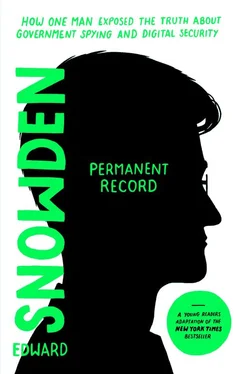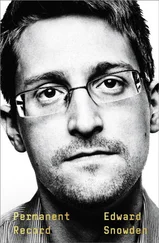My next doctor’s appointment confirmed I wasn’t long for the army. After examining me and a new set of X-rays, the doctor said that I was in no condition to continue with my company. The next phase of training was airborne, and he told me, “Son, if you jump on those legs, they’re going to turn into powder.”
If I didn’t finish the basic training cycle on time, I’d lose my slot in 18X, which meant that I’d be reassigned according to the needs of the army. They could make me into whatever they wanted: regular infantry, a mechanic, a desk jockey, a potato peeler, or—in my greatest nightmare—doing IT at the army’s help desk.
The doctor must have seen how dejected I was, because he cleared his throat and gave me a choice: I could get recycled, or he could write me a note putting me out on what was called “administrative separation.” This, he explained, was a special type of severance, not characterized as either honorable or dishonorable, only available to enlistees who’d been in the services fewer than six months. It was a clean break, and could be taken care of rather quickly.
I accepted his offer.
Shortly thereafter, I was transferred to the medical unit. I signed some forms formalizing my administrative discharge and left on crutches that the army let me keep.
I can’t remember exactly when, in the midst of my convalescence, I started thinking clearly again. First the pain had to ebb away, then gradually the depression ebbed, too, and after weeks of waking to no purpose beyond watching the clock change, I slowly began paying attention to what everyone around me was telling me: I was still young, and I still had a future. I only felt that way myself, however, once I was finally able to stand upright and walk on my own.
I was ready to face the facts: If I still had the urge to serve my country, and I most certainly did, then I’d have to serve it through my head and hands—through computing. Which meant I would need a security clearance.
There are, generally speaking, three levels of security clearance. From low to high they are confidential, secret, and top secret. A top secret clearance can also be extended with a Sensitive Compartmented Information qualifier, creating the coveted TS/SCI access required by top-tier agencies like the CIA and NSA. The TS/SCI is by far the hardest access to get, but also opens the most doors. The approval process for a TS/SCI can take a year or more. All it involves is filling out some paperwork, then sitting around with your feet up and trying not to commit too many crimes while the federal government renders its verdict. The rest, after all, is out of your hands.
On paper, I was a perfect candidate. I was a kid from a service family, nearly every adult member of which had some level of clearance; I’d tried to enlist and fight for my country until an unfortunate accident had laid me low. I had no criminal record, no drug habit. My only financial debt was the student loan for my Microsoft certification, and I hadn’t yet missed a payment.
None of this stopped me, of course, from being nervous.
The goal of all this background checking was not only to find out what I’d done wrong, but also to find out how I might be compromised or blackmailed. The most important thing to the Intelligence Community (IC) is not that you’re 100 percent perfectly clean, because if that were the case they wouldn’t hire anybody. Instead, it’s that there’s no dirty secret out there that you’re hiding that could be used against you, and thus against the agency, by an enemy power.
This, of course, set me thinking. Nothing I could come up with would have raised even an iota of eyebrow from investigators. Still, I was worried about my chat logs and forum posts, all the supremely moronic commentary that I’d sprayed across gaming and hacker sites when I was younger. When I went back and reread the posts, I cringed. Half the things I’d said I hadn’t even meant at the time, and the other half, the things I think I had meant at the time, were even worse. I’d grown up.
This might be a familiar problem for any generation that grows up online. My generation was the first to be able to discover and explore our identities almost totally unsupervised. But we gave hardly any thought to the fact that it was all being preserved forever, and that one day we might be expected to account for it.
My situation was somewhat different, however, in that most of the message boards of my day would let you delete your old posts. Using my computer science skills, I could put together one tiny little script—not even a real program—and all of my posts would be gone in under an hour. It would’ve been the easiest thing in the world to do. Trust me, I considered it.
But ultimately, I couldn’t. Something kept preventing me. It just felt wrong. To blank my posts from the face of the earth wasn’t illegal, and it wouldn’t even have made me ineligible for a security clearance had anyone found out. But the prospect of doing so bothered me nonetheless. What mattered to me wasn’t so much the integrity of the written record but that of my soul. I didn’t want to live in a world where everyone had to pretend that they were perfect, because that was a world that had no place for me or my friends. To erase those comments would have been to erase who I was, where I was from, and how far I’d come.
I decided to leave the comments up and figure out how to live with them. We can’t erase the things that shame us, or the ways we’ve shamed ourselves, online. All we can do is control our reactions—whether we let the past oppress us, or accept its lessons, grow, and move on.
In the midst of waiting for the clearance process to take its course, I met Lindsay Mills on an online dating site. She would go on to become my partner and the love of my life. Our first date was a continuation of our first contact online and the start of a conversation that will last as long as we will.
I told her I was worried about the upcoming polygraph, or lie detector, test required for my clearance, and she offered to practice with me. The philosophy she lived by was the perfect training: Say what you want; say who you are; never be ashamed. If they reject you, it’s their problem.
I passed the test with flying colors.
As required, I had to answer the series of questions three times in total, and all three times I passed, which meant that not only had I qualified for the TS/SCI, I’d also cleared the “full scope polygraph”—the highest clearance in the land.
I was twenty-two years old, had a girlfriend I loved, and I was on top of the world.
When my country went to war after 9/11, I answered the call. I found that the patriotism my parents had taught me was easily converted into nationalist fervor. For a time, especially in my run-up to joining the army, my sense of the world came to resemble the duality of the least sophisticated video games, where good and evil are clearly defined and unquestionable.
However, once I returned from the army and rededicated myself to computing, I gradually came to regret this simple world view. The more I developed my abilities, the more I matured and realized that the technology of communications had a chance of succeeding where the technology of violence had failed in the US’s various wars in the Middle East post-9/11. Democracy could never be imposed at the point of a gun, but perhaps it could be sown by the spread of silicon and fiber.
In the early 2000s, the internet was still just barely out of its formative period, and, to my mind at least, it offered a more authentic and complete incarnation of American ideals than even America itself. A place where everyone was equal? Check. A place dedicated to life, liberty, and the pursuit of happiness? Check, check, check. Here was this wild, open new frontier that belonged to anyone bold enough to settle it, swiftly becoming colonized by governments and corporate interests that were seeking to regulate it for power and profit.
Читать дальше












